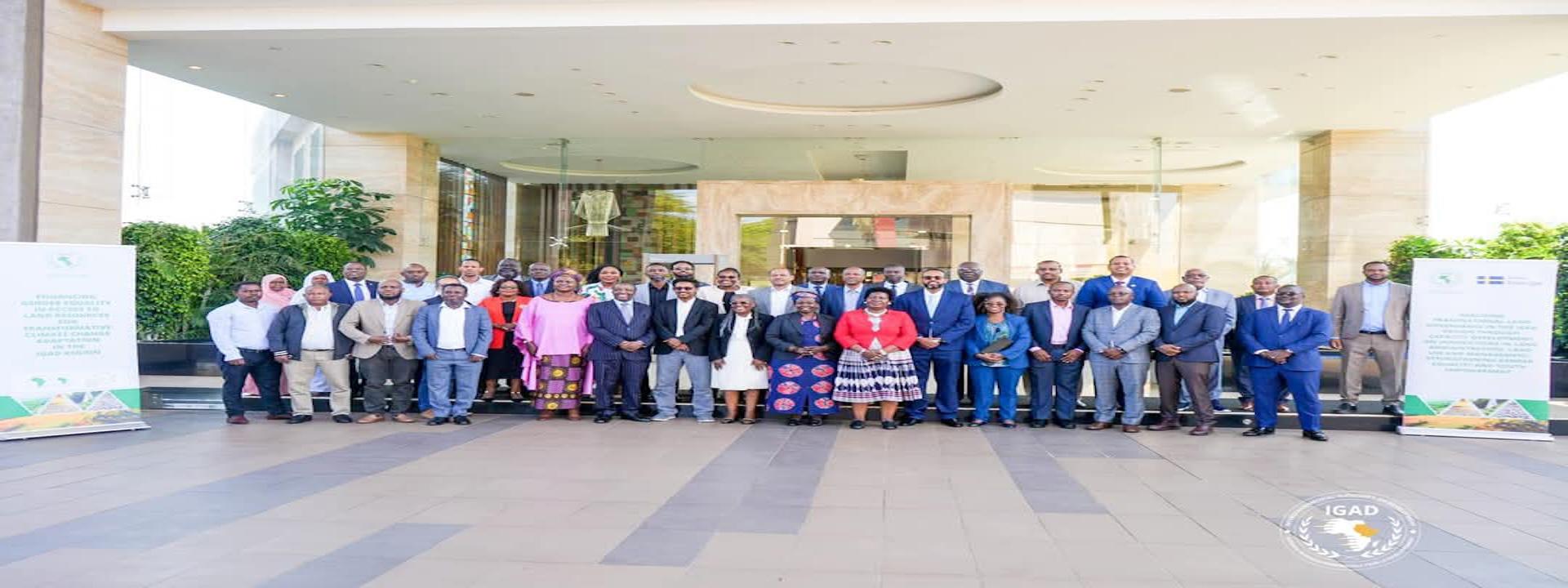February 12, 2025 (Nairobi, Kenya): The Intergovernmental Authority on Development (IGAD) through its Land Governance Unit, in collaboration with the host country’s Kenya National Land Commission and the Ministry of Lands, Housing and Urban Development of the Republic of Kenya have today concluded a three-day meeting to assess the capacity of Land administration Education institutions in the IGAD region.
The 3-day meeting aimed to assess the institutional capacity of land administration education institutions in terms of systems and structures, infrastructure as well and staffing; identify common knowledge needs; identify a centre with appropriate training courses and finally identify existing opportunities and entry points for building an IGAD Centre of Excellence in Land Administration.
In his opening address, Mr Gershom Otachi, the chairperson of the host Kenya’s National Land Commission emphasized the critical role of land administration in ensuring tenure security, economic development, and social stability in the region. He highlighted the need for building the capacity of land governance and land administration institutions to train technical personnel in the land sector to undertake the necessary reforms in the land sector.
Joselyn Bigirwa, the IGAD land governance Coordinator and IGAD head of Mission to the Republic of Uganda reiterated IGAD’s commitment to enhancing the capacity of land administration institutions across member states. She noted that the mapping of key institutions in Kenya, Uganda, Ethiopia, Somalia, Djibouti and South Sudan is a great step toward developing a comprehensive capacity building strategy. The workshop, she added, would be instrumental in assessing institutional strengths and gaps and identifying a potential Centre of Excellence in Land Administration.
Over the three-day workshop, representatives from ministries responsible for land governance, land commissions, and leading academic institutions engaged in discussions centred on institutional capacity, infrastructure, staffing, and training needs. The assessment focused mainly on three levels.
- Individual capacity of personnel implementing land administration systems.
- Organizational capacity of institutions managing land administration education.
- The enabling environment, including laws, policies, and practices governing land administration.
Presentations from key institutions in all the member states also highlighted existing capacity gaps and opportunities. Participating institutions independently rated their respective strengths using the IGAD capacity assessment matrix. An outcome of the exercise was the identification of institutions with the potential to host the IGAD Centre of Excellence in Land Administration.
At the closing session, Dr Peris Mang’ira, the Director of National Planning at the Ministry of Lands, Housing and Urban Development in Kenya lauded IGAD’s efforts to secure a centre of excellence for land governance in the region to spearhead regional learning. This will be a learning opportunity to complement the efforts of land governance institutions as well as educational institutions focusing on land governance across the region.
The workshop concluded successfully with key recommendations including the establishment of an IGAD Centre of Excellence in Land Administration, with 3 to 4 institutions undergoing further capacity assessment before one is ultimately designated as the regional Centre of Excellence. A regional capacity-building plan will be developed based on the assessment of capacity gap findings to address training, research, and infrastructure gaps. The meeting also reaffirmed IGAD’s commitment to working closely with the Network of Excellence on Land Governance in Africa (NELGA) and development partners such as GIZ to ensure sustainable capacity development in the region.

